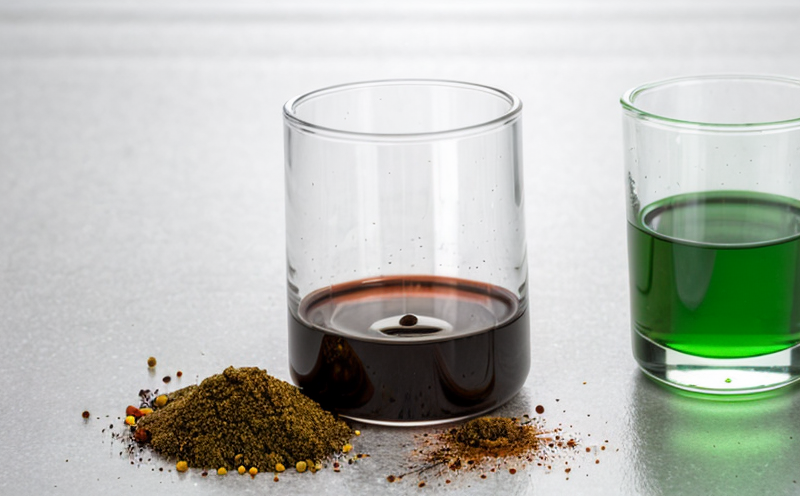OECD 205 Avian Dietary Toxicity Test
The OECD 205 Avian Dietary Toxicity Test is a critical component in evaluating the potential adverse effects of chemicals, pesticides, and other substances on avian health. This test provides valuable information for regulatory compliance and ensures that products are safe for use across various industries.
Developed by the Organization for Economic Co-operation and Development (OECD), this internationally recognized standard is widely used in both research and regulatory settings. It allows for a comprehensive evaluation of the dietary toxicity of a substance, focusing on the effects it may have on avian species over time. This test is essential for ensuring that products do not pose risks to wildlife, particularly in areas where birds are exposed through their diets.
The OECD 205 Avian Dietary Toxicity Test involves exposing laboratory-reared chicks to a dietary mixture containing the substance under investigation. The duration of exposure can vary depending on the specific goals and regulatory requirements but typically ranges from several days to weeks. By monitoring the health parameters and behavior changes in these birds, researchers can identify any toxic effects.
Health parameters that are closely monitored include weight gain or loss, mortality rates, feather quality, and overall activity levels. Any deviations from normal avian behavior could indicate toxicity issues. Additionally, histopathological examinations of tissues such as liver, kidney, heart, and brain provide further insights into the extent of any adverse effects.
The OECD 205 Avian Dietary Toxicity Test is particularly relevant for industries involved in agriculture, pharmaceuticals, and chemical manufacturing where there is a risk that substances could enter the food chain through contaminated feed or water sources. Compliance with this test ensures adherence to international standards set by regulatory bodies like the European Commission.
For researchers interested in understanding how certain compounds affect avian species, this test offers a reliable method for assessing potential risks. By providing detailed data on both acute and chronic effects, it helps inform safer product design and formulation processes.
Given its importance in ensuring environmental safety and compliance with regulatory standards, the OECD 205 Avian Dietary Toxicity Test remains a cornerstone of avian toxicology research. Its wide applicability across different sectors makes it an indispensable tool for protecting both human health and wildlife biodiversity.
Scope and Methodology
The OECD 205 Avian Dietary Toxicity Test is designed to assess the potential toxicity of a chemical, pesticide, or other substance when ingested by avian species. The test involves feeding laboratory-reared chicks with a controlled diet that includes varying concentrations of the substance being evaluated.
- Duration: Typically lasts from 21 days to up to 90 days
- Species: Domestic chicks (Gallus gallus)
- Feeding Regimen: Continuous access to test diets containing different concentrations of the substance under investigation
- Endpoints: Monitoring health parameters such as mortality rate, weight change, and behavior changes; histopathological examination of tissues like liver, kidney, heart, and brain.
The test aims to provide data on both acute and chronic effects, offering a comprehensive evaluation of the dietary toxicity. It ensures that any adverse impacts on avian health are identified early enough for corrective actions to be taken if necessary.
By adhering strictly to OECD guidelines, this test maintains high standards of reliability and accuracy. The use of standardized procedures guarantees consistent results across different laboratories conducting similar tests globally.
Eurolab Advantages
At Eurolab, we pride ourselves on offering world-class services that meet the highest industry standards. Our expertise in performing OECD 205 Avian Dietary Toxicity Tests ensures accurate and reliable results every time.
- Comprehensive Expertise: Our team consists of highly qualified professionals with extensive experience in avian toxicology, ensuring precise execution of each test.
- State-of-the-Art Facilities: Equipped with advanced laboratory equipment and controlled environments that replicate real-world conditions as closely as possible.
- Strict Compliance: Adherence to OECD guidelines ensures consistency and validity in all our test results.
- Rapid Turnaround Times: Efficient processes enable quick delivery of reports without compromising on quality.
- Confidentiality: We respect the confidentiality of client information, ensuring that sensitive data remains secure throughout the testing process.
- Supportive Services: Our dedicated support team is always available to assist with any queries or concerns you might have regarding your tests.
Choosing Eurolab means choosing a partner committed to delivering top-tier services tailored specifically for your needs. Whether you require single tests or ongoing monitoring, we are here to provide the expertise and resources needed to ensure successful outcomes.
Quality and Reliability Assurance
To maintain the highest standards of quality and reliability in our services, Eurolab employs rigorous quality control measures at every stage of the OECD 205 Avian Dietary Toxicity Test process. From initial sample preparation to final analysis and reporting, each step is meticulously controlled to ensure accuracy and precision.
- Sample Preparation: Samples are prepared following strict protocols to maintain consistency across all tests.
- Dietary Mixture: Careful formulation of the dietary mixture ensures accurate representation of real-world exposure scenarios.
- Monitoring: Continuous monitoring during the test period allows for timely detection and documentation of any adverse effects.
- Data Analysis: Statistical methods are applied to analyze collected data, providing robust insights into potential toxicity issues.
- Reporting: Detailed reports are generated based on the analyzed data, offering clear interpretations along with recommendations for further action if required.
In addition to these internal controls, Eurolab participates in proficiency testing programs organized by reputable organizations such as AOAC International and EURACHEM. These external assessments help verify our ability to consistently deliver accurate results.
Our commitment to quality does not end with the completion of a single test; it extends beyond into ongoing improvements based on feedback from clients and industry trends. By continuously refining our methodologies, we ensure that Eurolab remains at the forefront of avian toxicology research.





